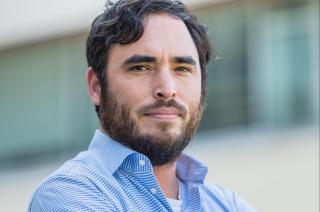Written by: Nikos Harris, Director of Experiential Learning at Allard Law and Patricia Barkaskas, Instructor at Allard Law and Academic Director of the Indigenous Community Legal Clinic
Two central objectives of a law school are to prepare students for the complexities of legal practice and to make a meaningful contribution to addressing the crisis in access of justice. The transformative changes that the Peter A. Allard School of Law has made to its experiential programming have allowed the school to make substantial contributions to both these goals.
New and Expanded Experiential Programs
The Allard School of Law has had a long history of outstanding experiential programs, including numerous competitive moots, longstanding clinics such as the Indigenous Community Legal Clinic (ICLC), Criminal Clinic, and Judicial Externship, and courses with significant experiential components such as the Allan McEachern Course in Trial Advocacy. In response to growing student and community demand, the law school has over the past five years very significantly increased its experiential programming in a number of ways, including:
- adding three new clinical programs (Business Law Clinic, RISE Women’s Clinic in partnership with West Coast LEAF, Corporate Counsel Externship);
- adding four competitive mooting teams (Corporate Securities Moot, Willem C. Vis International Commercial Arbitration Moot, Competition Law Moot, Ian Fletcher International Insolvency Law Moot);
- significantly expanding the number of student spaces in a number of existing clinics (ICLC, International Justice and Human Rights Clinic, UBC Innocence Project, Law Students’ Legal Advice For-Credit Program); and,
- adding courses with significant experiential components in a number of areas of law including alternative dispute resolution.
An additional experiential program the Allard School of Law has developed is the Indigenous Cultural Competency Certificate (ICCC). The ICCC utilizes experiential learning to assist Allard School of Law students, faculty and staff in developing better understandings of colonial assumptions, beliefs, and biases that form the foundation of the Canadian legal system, the history of colonial practices and policies in Canada, Indigenous perspectives on law, and what decolonization means for the practice of law. Through this eight-month, non-credit certificate course participants learn about implicit bias, anti-racism, histories of Indigenous-Crown relations, including colonial policies and practices enacted through law, Indigenous perspectives on legal issues, and Indigenous law. Participants are encouraged to reflect on their own identity by thinking about how they are situated in relation and relationship to Indigenous peoples and communities, Indigenous legal systems, and one another as participants in the program. An essential part of professional practice is the ability to be self-reflective and building the capacity to be self-reflective in both life and work is a key part of developing cultural competence. A key outcome is to allow participants to engage with broad conceptual thinking and develop skills central to a strong professional practice, namely listening, reflecting, and witnessing.
Benefits to Students and the Community
This expansion of our experiential programming has greatly benefited both students and the broader community. There are now not only sufficient places available for every student at the Allard School of Law to participate in experiential learning, but these opportunities now engage additional areas of law including inter-cultural competency training, family law, solicitors’ work, and international legal issues. Further, the significant expansion of our clinics has allowed students to substantially increase the already substantial free legal services to those in the community who cannot afford a lawyer. Over the past year, students in our legal clinics worked on approximately 1000 files for persons who could not afford to pay for legal representation, from providing summary advice to providing full representation. Including the work of Allard School of Law student volunteers in the Law Students’ Legal Advice Program non-profit organization who carry approximately 1500 files annually, students at the Allard School of Law are collectively working on approximately 2500 files a year for people who would not otherwise be able to access legal services. Allard School of Law students also provide access to justice in a number of additional ways, including by volunteering with programs such as Pro Bono Students Canada.
Given the importance of experiential learning to legal education and the importance of students providing access to justice, in the summer of 2018 the Allard School of Law adopted a requirement that each student complete an experiential program before graduation. This important change to our curriculum means that all students will benefit from experiential programs and the Allard School of Law will continue to be able to make a significant contribution to access to justice.
The list of persons who made this incredible expansion of experiential programming at the law school is a long one. It begins with the leadership of both current Dean Catherine Dauvergne and former Dean Many Anne Bobinski who made experiential learning a priority for the law school and devoted significant time and resources to expanding experiential programming. The efforts of Associate Dean Academics Professor Goold, Professor Benedet and Professor MacDougall were also key to the expansion, and they helped implement many of the new programs. Many staff have also been critical to success of the expansion of our experiential programs, and particularly Chiara Woods, former Executive Director of the Centre for Business Law at the Allard School of Law, Kaila Mickelson, Assistant Dean of Students, Lee Schmidt, Associate Director of Indigenous Studies, and Lucia Pencikova, former Manager of Student Experience.
The Allard School of Law is also deeply indebted to the multi-talented professors, lecturers, lawyers and judges who have been directing clinical programs, supervising clinical students, coaching moots, and teaching experiential courses. Teaching in experiential programs is particularly complex because it involves teaching substantive law and ethics while also instructing students on a number of legal skills and procedures. Our clinical faculty also have to administer complex programs which engage diverse areas of law. The law school is also incredibly fortunate to have numerous members of the legal community volunteering their time and expertise in a number of our experiential programs.
Finally, much of the Allard School of Law’s experiential learning relies on philanthropic support. The considerable expansion of our experiential programming would simply not be possible without the extraordinary generosity of a number of donors including contributions from alumni, law firms, foundations and other supporters.


